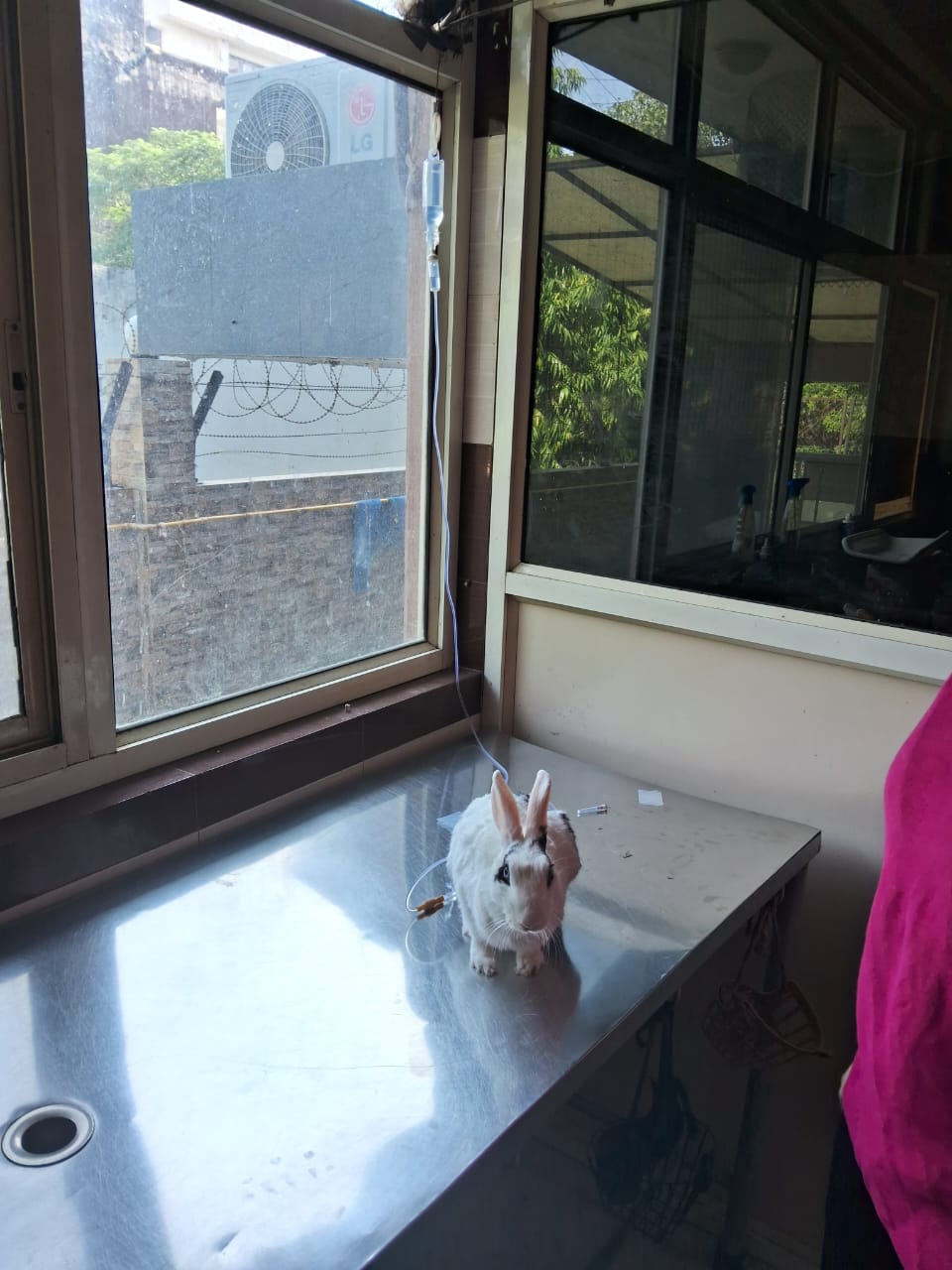
rabbit was presented to noida petclinic sector 72 with high fever 106 F . managed at noida petclinic with fluid therapy and required emergency treatment. patient recovers well and managed well. here are some tips for owners and advise to dear junior vets.
Fluid therapy in rabbits is a crucial aspect of veterinary care, especially in cases of dehydration, illness, or surgery. Rabbits are prone to dehydration due to various factors such as inadequate water intake, gastrointestinal stasis, or illness. Fluid therapy aims to restore and maintain hydration, correct electrolyte imbalances, and support organ function.
Here are some important points to consider regarding fluid therapy in rabbits:
Types of Fluids: The choice of fluid depends on the condition of the rabbit and the specific requirements of the case. Typically, balanced electrolyte solutions such as lactated Ringer's solution are used. These solutions help to replace lost fluids and electrolytes.
Administration: Fluids can be administered via various routes, including subcutaneous (under the skin), intravenous (into a vein), or intraperitoneal (into the abdominal cavity). Subcutaneous administration is often preferred for mild to moderate dehydration and can be done using a needle and syringe. Intravenous administration may be necessary for severe dehydration or critical cases, but it requires careful monitoring and expertise.
Monitoring: Rabbits undergoing fluid therapy should be closely monitored for signs of improvement or deterioration. Vital parameters such as hydration status, heart rate, respiratory rate, and mucous membrane color should be regularly assessed. It's also essential to monitor urine output and electrolyte levels through blood tests.
Rate of Administration: The rate at which fluids are administered is crucial to prevent fluid overload or dehydration. The veterinarian will determine the appropriate rate based on the rabbit's condition, weight, and fluid requirements.
Underlying Conditions: Fluid therapy is often part of the overall treatment plan for underlying conditions such as gastrointestinal stasis, renal disease, or infections. Addressing the underlying cause is essential for the success of fluid therapy.
Careful Handling: Rabbits can be sensitive animals, and handling should be done gently to minimize stress. Proper restraint techniques should be employed to ensure the safety of both the rabbit and the caregiver.
Prevention: Preventive measures such as ensuring access to fresh water, providing a balanced diet, and regular veterinary check-ups can help prevent dehydration and the need for fluid therapy.
It's important to note that fluid therapy in rabbits should always be administered under the guidance of a veterinarian experienced in rabbit care. Rabbits can have unique physiological responses to fluids, and incorrect administration can lead to complications. Additionally, the underlying cause of dehydration or illness must be addressed to ensure the best possible outcome for the rabbit.




